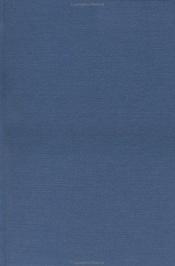Literate Programming
Blurb
Literate programming is an approach to programming introduced by Donald Knuth in which a program is given as an explanation of the program logic in a natural language, such as English, interspersed with snippets of macros and traditional source code, from which a compilable source code can be generated.The literate programming paradigm, as conceived by Knuth, represents a move away from writing programs in the manner and order imposed by the computer, and instead enables programmers to develop programs in the order demanded by the logic and flow of their thoughts. Literate programs are written as an uninterrupted exposition of logic in an ordinary human language, much like the text of an essay, in which macros are included to hide abstractions and traditional source code.
Literate programming tools are used to obtain two representations from a literate source file: one suitable for further compilation or execution by a computer, the "tangled" code, and another for viewing as formatted documentation, which is said to be "woven" from the literate source.

 English
English Español
Español Deutsch
Deutsch
Member Reviews Write your own review
Be the first person to review
Log in to comment